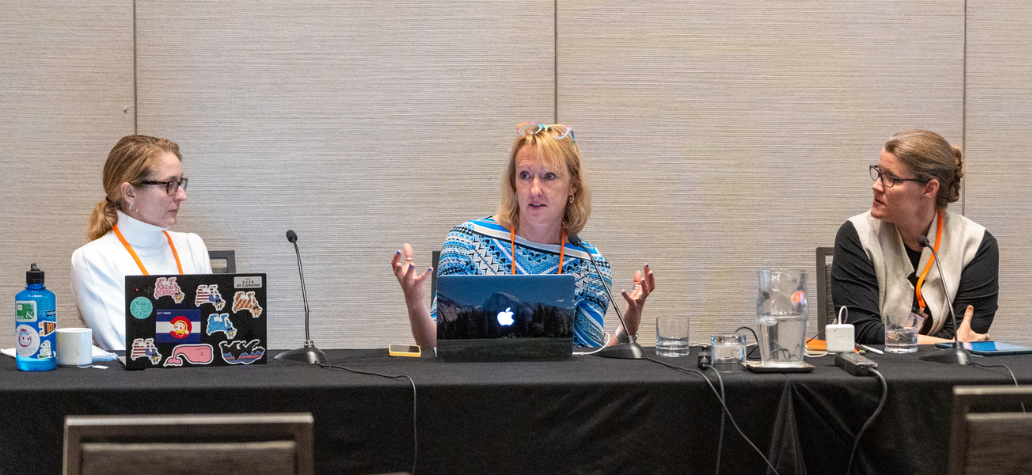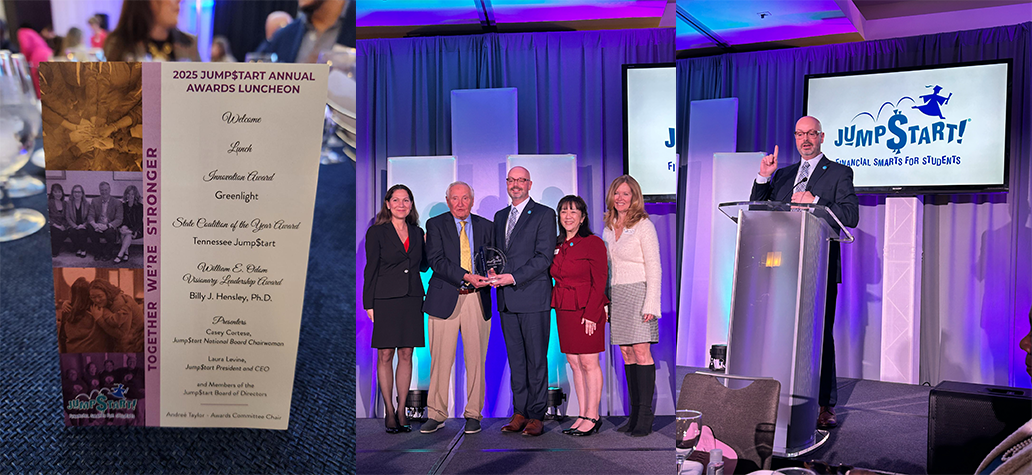Throughout Financial Capability Month, we are publishing an initial overview from our inaugural Financial Education Innovation & Impact Summit.
Ensuring access to quality financial education is an important aspect of our work at NEFE and among our partners in the field. With less than half of states offering financial education in their public schools, millions of Americans do not have guaranteed access to this essential class. Wealthier school districts are more likely to provide personal finance courses to students, leaving behind those with fewer resources but no lesser need. Outside the K-12 system, there are often fewer opportunities to engage with unbiased, high-quality financial education. Financial stress is a huge detriment to overall health and happiness. Having the knowledge and skill to navigate an increasingly complex financial landscape is crucial to overall well-being.
In light of this landscape, when defining our sessions’ track themes for the inaugural Financial Education Innovation & Impact Summit, access was a clear choice.
We strive to ensure financial education works for everyone and that begins with having the opportunity to learn.
The aim for this track was a specific focus on how to improve access to financial education. When crafting our sessions, we tapped experts from different sectors and perspectives to discuss innovative strategies of reaching more individuals with crucial money management education.
We kicked off the access track with a session examining gaps in accessing financial education featuring researchers and Beth Bean, Ph.D., senior vice president of Research and Impact. This panel set the stage for driving conversations on what populations are being excluded from financial education. Additional panels included:
- How public-private-partnerships can increase access (with spotlights on Visa’s work in the space and innovative legislation out of Washington state with their financial education public-private-partnership).
- Continuity of access, with a specific lens on life stages, that included speakers from K-12, workforce and higher education sharing about their work and how they might better connect.
- Technology’s role in increasing access, based on data gathered from recent opinion polling.
- Where financial education is happening in other fields.
Overall, the conversations were enlightening and sparked out-of-the-box thinking on how financial education can reach more folks. We are excited to highlight some of these sessions as we develop additional assets from the Summit.
We will continue to work on increasing financial education access through our policy work examining state legislation and through our research priority ensuring that all populations are considered in financial education. We are testing out best practices through our strategic partnership pilot program with an eye towards scalability. Finally, we are even reconsidering how we define access by considering the various ways individuals might opt out of actively managing their money due to financial trauma.
We know that when individuals have the option to learn more about key financial topics, they overwhelmingly opt to participate. The access track of the Summit focused on ensuring individuals, regardless of background or identity, have that opportunity. Improving access to effective financial education will continue to be a high priority for our work.


